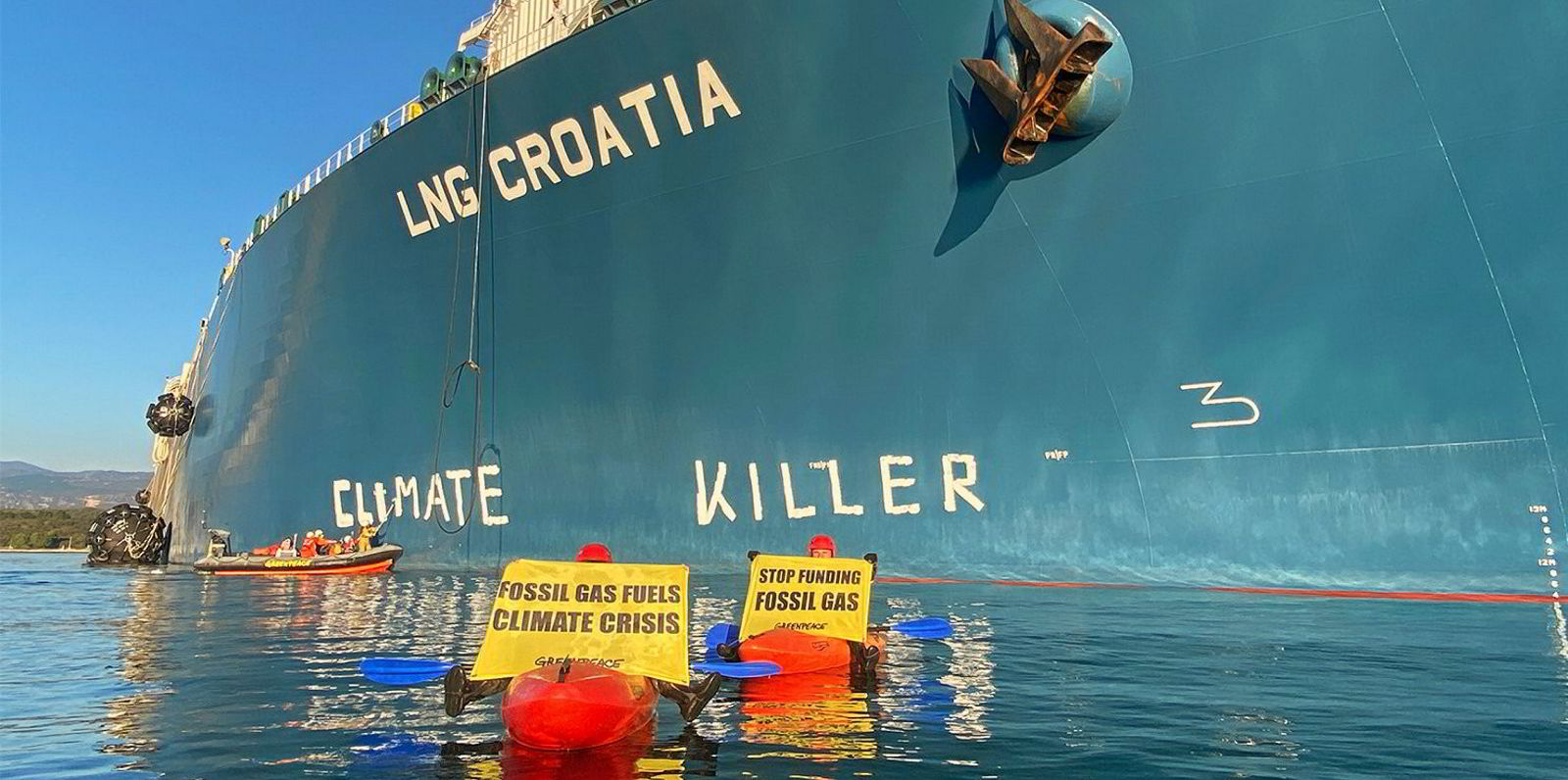One-quarter of Europe’s shipping will be LNG-powered by 2030, locking in fossil fuel use for decades, due to “misguided” sustainability targets encouraging uptake of the gas, a clean transport lobby group claims.
The FuelEU Maritime regulations proposed last summer by the European Commission to require ship operators to reduce the life-cycle carbon footprint of fuels is under discussion in the European Parliament. A final text is expected in the second half of 2022.
The EU targets, which are tightened over time, are designed to gradually squeeze out the most polluting oil-powered ships, and drive the uptake of sustainable fuels.
But after undertaking a new study, lobby group Transport & Environment (T&E) said the targets will lock in LNG use while bringing limited benefits to the climate.
The regulations allow heavy fuel oil-powered ships to be replaced by fossil LNG-fuelled vessels well into the 2040s, according to the organisation.
Its report argues that, although currently expensive, LNG will probably cost far less than genuinely clean alternative fuels and will make up 23% of the total energy used in EU shipping by 2030, up from 6% today.
Delphine Gozillon, sustainable shipping officer at T&E, said: “Genuinely clean solutions do exist, but currently they are expensive. If we kick-start demand now, a green shipping future is possible. Continue to waste precious time on fossil gas and it will start to look impossible.”
As the EC proposal stands, ship operators will have little or no incentive to switch to more sustainable alternatives such as green hydrogen or hydrogen-based fuels known as e-fuels, T&E added.
It reiterated a warning it made last year that shipowners can rely on fossil LNG and “dubious” biofuels to meet EU targets into the 2040s without a mandate for e-fuels.

Gozillon said Europe’s policymakers need to introduce dedicated quotas and incentives to boost demand for hydrogen-based fuels.
“The old narrative of gas as transitional fuel just doesn’t hold. We cannot afford to shift from one fossil fuel to another,” she said.
“It will not get us to zero emissions by 2050 and, by putting more methane into the atmosphere, may even fry the planet faster.”
T&E recommends mandating a 6% target for shipping e-fuels by 2030 as a straightforward way to ensure supply and demand for sustainable fuels, while providing business predictability to shipowners and bunker suppliers.
It is calling on policymakers to change the proposals.




